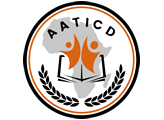Why Attend
Training departments carry a major responsibility in the organizations which focus on developing employees’ knowledge and skills for current and future business needs. Being in charge of a training department requires an understanding of a number of concepts like management, strategy, policies, budget, evaluation and technology. The ‘Certified Training Manager’ course covers such important topics and provides participants with the knowledge and tools to survive the ever growing demands placed on the training function.
Course Methodology
To apply theory, the course incorporates an experiential learning approach that allows participants to individually and collectively develop solutions to case studies, draft budgets, training policies, evaluate surveys and create business requirements for training systems.
Course Objectives
By the end of the course, participants will be able to:
- Describe the key roles and responsibilities of training departments
- Develop a training department mission statement with key result areas and key performance indicators
- Establish a comprehensive training strategy which includes training policies, procedures, and training plans
- List important steps for developing and administering training budgets
- Identify methods for evaluating the training function
- Conduct a cost benefit analysis for training activities
- Prepare business requirements for a Learning Management System (LMS) and list the necessary system selection steps
Target Audience
This course targets existing or aspiring training managers. Specialists, team leaders, training managers and line managers who have a direct interest to pursuing a career as a training manager.
Target Competencies
- Leading and supervising
- Relating and networking
- Persuading and influencing
- Presenting and communicating
- Analytical thinking
- Formulating concepts and strategies
- Planning and organizing
- Achieving goals and objectives
Location:
South AfricaTraining Dates:
Each course starts every Monday of each week. Please book your training on a date that is a Monday.Course Duration:
Unit Standard:
NQF Level:
Number of Credits:
Course Fees
Note: Please fill in the online application form on the left or bottom if this page to receive a quotation with detailed pricing from AATICD.How to Apply:
To Apply Simply Fill in the Online Enquiries / Applications form on the Right Sidebar or Bottom of this website https://www.aaticd.co.zaNB:
When filling the online application form; please take note of your desired Training Month, Duration in Weeks and Training Session. This will give us the exact dates you will be attending your classes.Also note that Tuition Fees must be paid upfront on or before training start date. This is to ensure that all resources are made availabe for you before you start. You will not be allowed into training if fees are not paid and verified.
Also note that Tuition Fees Cancellations must be made 14 business working days before the starting date of training. This will allow us to do a 50% refund of the total amount paid. If cancellations are made thereafter note that no refund will be made to delegates.
Tuition Fees include teas and lunch as well as either a laptop or tablet which a delegate will take home free of charge.
Tuition Fee DOES NOT include Accommodation, Dinners and other Extra Curricular Activities or Incidentals. Delegates are expected to fund this on their own. AATICD will not be held accountable for any incidents to delegates.
In-House Trainings are also available for 3 or more delegates for any duration. Please consult with our Administration for such In-House training bookings.
Course Outline
- Managing a training department
- Defining management
- Key management functions
- Personal assessment and development plan
- Role of the training department in an organization
- Conducting a ‘PEST’ and ‘SWOT’ analysis
- Devising a training strategy
- Training department mission statement
- Identifying key result areas
- Training department key performance indicators
- Marketing the training function within your organization
- Training and development roles
- Structure of a training department
- Mapping training policies, procedures and training plans
- Importance of training policies
- A look at common training policies
- Drafting training policies
- Components of a training plan
- Partnering with training providers
- Establishing a training budget
- Whose responsibility is it
- Budget types and techniques
- Measurement, metrics and budget data
- Eight steps to creating your budget
- Tips for defending your budget
- Examples of training budgets
- Evaluating the training function
- Reasons for evaluating the training function
- Key performance indicators
- Deciding on indicators
- Monitoring and reporting
- Measuring employees’ satisfaction of the training function
- Evaluation methods
- Developing the training function’s satisfaction survey
- Evaluating transfer of behavior
- Conducting a cost/benefit analysis
- Reporting return on investment
- Presenting your findings
- Selecting and implementing a LMS
- Purpose and importance of LMS
- Existing types and technology
- Common features
- Business requirements
- Defining the selection process
- Examples and comparison of LMS




